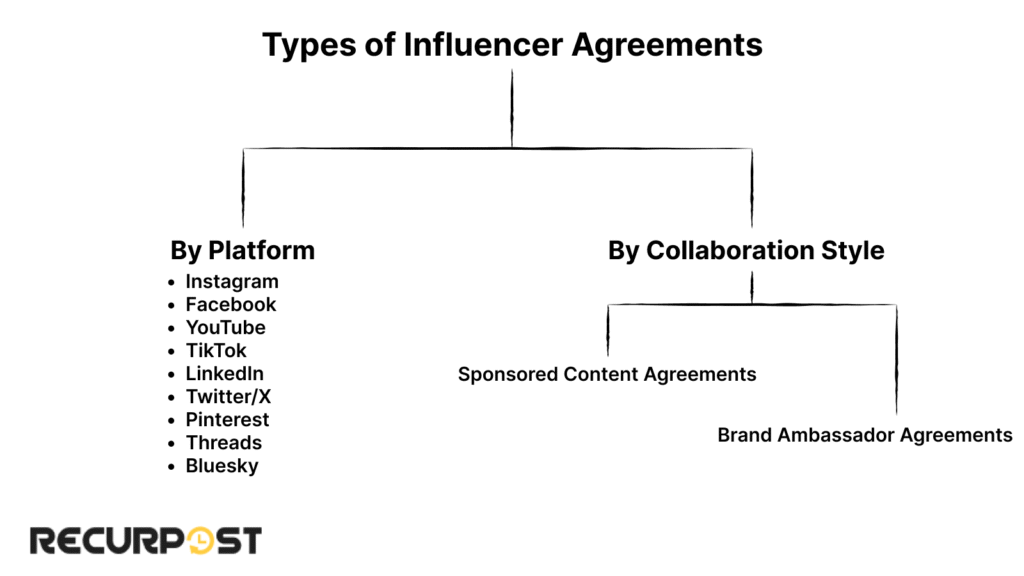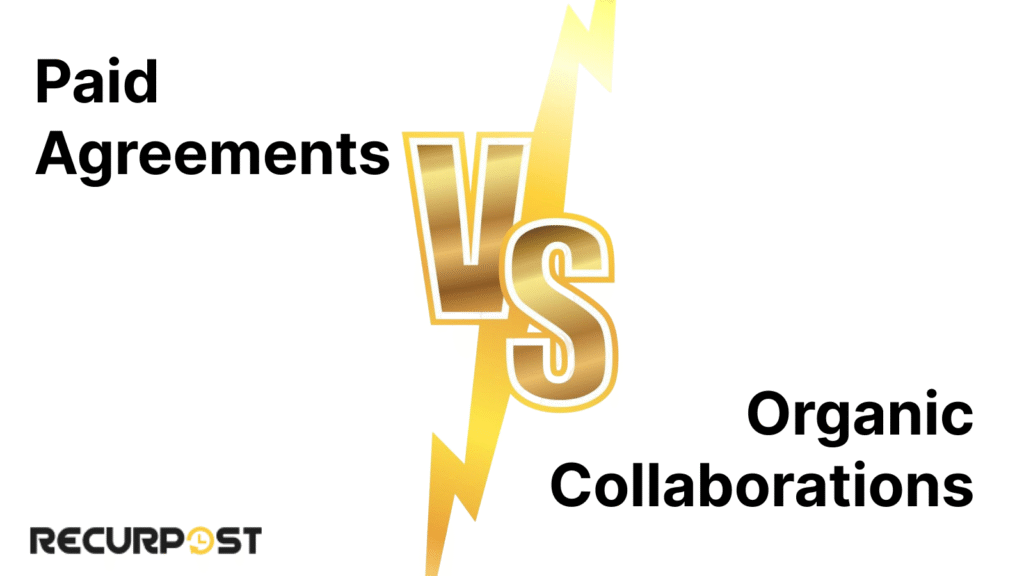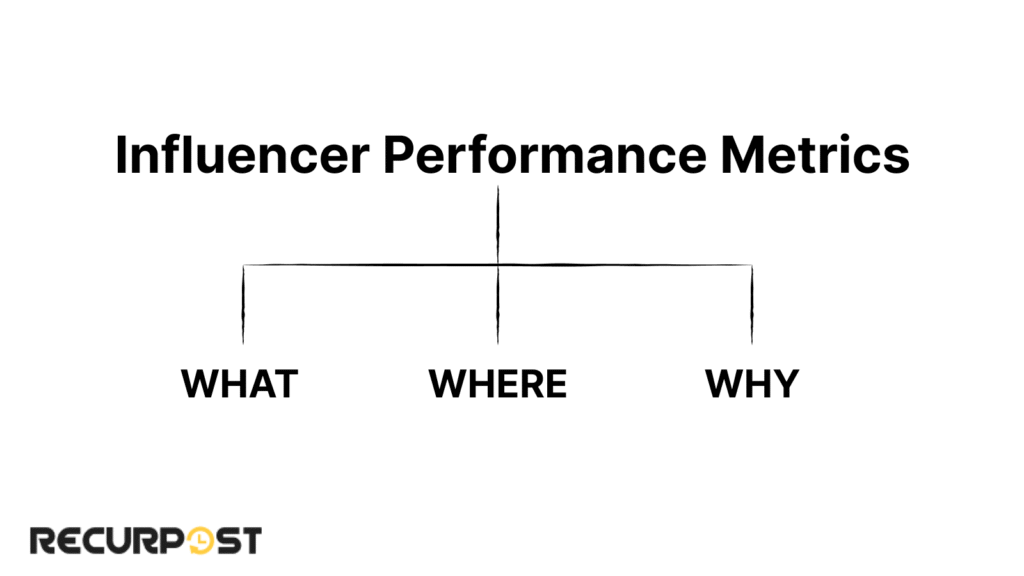Influencer marketing is booming across social media platforms, but without the right foundation, even the best campaigns can fall apart. That foundation is a clear, legally binding social media influencer agreement or social media influencer contract.
The global influencer marketing market size has more than tripled since 2020. As more brands invest in sponsored posts and social media collaborations, expectations are rising on both sides, and so are the risks.
A written contract aligns both influencer and brand expectations by defining content creation, sharing methods, timelines, and rules for intellectual property and brand reputation. Without contracts, missteps occur through missed posts, off-brand messaging, or ownership disputes.
Shipping free products without receiving content or seeing posts that conflict with brand image creates costly misfires beyond mere frustration.
Social media influencer agreements matter because they bring clarity, set expectations, and protect both creators managing multiple accounts and brands running time-sensitive campaigns.
What Is a Social Media Influencer Agreement?
A social media influencer agreement is a written contract between a brand and a social media influencer that establishes the framework through eight core structural components:
- scope of work defining content deliverables,
- payment terms outlining compensation schedules,
- intellectual property rights governing content ownership,
- exclusivity clauses restricting competitor partnerships,
- disclosure requirements for regulatory compliance,
- confidentiality provisions protecting proprietary information,
- contract term specifications setting duration boundaries,
- and legal terms covering governing law and liability protection.
It sets the terms for working together, from creating content and sharing sponsored posts to using brand guidelines and respecting intellectual property rights. This document is used across all types of influencer marketing partnerships, including one-time sponsored content and long-term brand ambassador roles.
A 2024 global survey shows 37.6% of digital marketing service providers regularly work with up to 10 influencers, while 14.7% work with over a thousand, making social media influencer agreements necessary for brands and businesses.
Social Media Influencer Contract
Make your influencer contract! Check and download our social media influencer agreement template to customize yours.

Why You Need a Social Media Influencer Contract
- Establishes clear expectations for brands and influencers.
- Defines required social media posts, content approval processes, and payment terms.
- Safeguards intellectual property, brand assets, and confidential information.
- Prevents disputes regarding production costs, end dates, and contract termination.
- Specifies hashtag requirements, cross-platform posting obligations, and exclusivity clauses.
- Protects parties from legal issues related to Federal Trade Commission (FTC) regulations and third-party claims.
- Eliminates confusion about influencer responsibilities and deadline requirements.
- Defines how sponsored content can be repurposed for future marketing initiatives.
- Structures include both small collaborations involving free products and paid deals with flat or monthly fees.
Well-structured agreements maintain marketing campaign momentum while protecting brand image across social media channels.
Best Influencer Management Platforms
Types of Social Media Influencer Contracts
Social media influencer agreements vary based on platforms used, marketing campaign scope, and collaboration duration between influencers and brands.

Social Media Influencer Contract By Platform
Social media platforms require different content formats, which influencer contracts must address when specifying how sponsored content appears across:
- Instagram & Facebook: Photos, Reels, Stories, or sponsored posts.
- YouTube: Long-form video content, integrations, and product placements.
- TikTok: Short-form clips, music usage, and specific hashtags.
- LinkedIn & Twitter/X: Thought leadership, brand mentions, and article resharing.
- Pinterest: Visual pins, product tagging, and evergreen content for marketing campaigns.
- Threads: Text-based engagement, casual updates, and brand visibility.
- Bluesky: Decentralized audience interactions, brand commentary, and creator-driven posts.
- Blogs: Long-form influencer-created content hosted outside social media platforms.
Content formats determine approval processes, performance measurement methods, and brand reuse rights for marketing purposes.
Social Media Influencer Contract By Collaboration Style
Influencer marketing contracts usually fall into two main styles that structure collaboration agreements through either short-term sponsored content arrangements featuring specific deliverables with one-time compensation for individual posts, or long-term brand ambassador partnerships establishing ongoing responsibilities across multiple campaigns with recurring payment schedules and extended exclusivity terms.
- Sponsored Content Agreements: Cover one-off deliverables, like posting on a social media account in exchange for a flat fee, free products, or a monthly fee.
- Brand Ambassador Agreements: Longer-term contracts where the influencer agrees to represent the company’s products across multiple social media channels during a fixed term.
Both types require clarity on intellectual property rights, payment terms, confidentiality clauses, and whether content will appear across different platforms or stay exclusive.
Well-structured influencer marketing contract examples demonstrate comprehensive scope definitions outlining specific deliverables, measurable performance targets with quantifiable metrics, clear compensation schedules detailing payment timelines, detailed usage rights governing content repurposing, and specific performance expectations tied to campaign objectives.
Custom documents and standard templates must align with applicable laws, protect brand image, and define influencer responsibilities.
Paid Agreements vs. Organic Collaborations

Social media mentions without compensation require no contracts, but monetary payment, product exchanges, or exclusivity arrangements necessitate social media influencer agreements.
Paid Collaborations
Paid partnerships establish clear deliverables and compensation where influencers create sponsored posts or social media content for flat fees, monthly payments, or free products. These agreements include:
- Content schedules are tied to a marketing campaign.
- Ownership of the influencer’s content.
- Posting terms across various platforms.
- Use of brand guidelines, disclosure requirements, and performance metrics.
Paid influencer marketing contracts protect brands through intellectual property, termination, confidentiality, and legal compliance clauses.
Organic Mentions
Organic mentions occur unpaid and voluntarily when influencers reference products from genuine interest without obligations. While generating exposure, brands lack control over messaging, timing, and accuracy, risking brand voice inconsistencies or intellectual property violations.
For any content involving compensation or formal campaigns, both the brand and the influencer are better protected with a signed influencer agreement.
Must-Have Clauses in Social Media Influencer Contracts
Strong social media influencer agreements protect all parties and maintain clear expectations throughout the contract period. Essential clauses structure partnerships and minimize disputes, missed deliverables, and legal complications.

1. Scope of Work
Outlines what the influencer creates, how many social media posts are required, and which social media platforms they must appear on.
2. Payment Terms
Covers whether compensation is a flat fee, a monthly fee, or based on free products. It may also include a compensation section for bonuses tied to performance metrics.
3. Intellectual Property Rights
Clarifies who owns the influencer’s content. It also defines whether the brand can reuse the content for marketing purposes and how long those rights last.
4. Exclusivity Clause
States if the influencer is restricted from promoting competitor brands, direct competitors, or similar products during the agreement.
5. Disclosure Requirements
Ensures compliance with FTC regulations and any platform-specific guidelines for sponsored content – influencer endorsement contracts must include mandatory disclosure language such as “#ad” or “#sponsored” hashtags, clear identification requirements for paid partnerships visible to audiences, honest opinion obligations maintaining authentic recommendations, and adherence to Federal Trade Commission truth-in-advertising standards governing commercial endorsements.
6. Confidentiality Clause
Protects proprietary information, confidential information, and brand guidelines from being shared with any other party.
7. Contract Term & Termination
Details the fixed term, end date, contract termination terms, and any applicable force majeure scenarios.
8. Legal Terms
Includes governing law, entire agreement, liability for third-party claims, and consequences of influencer’s failure to meet obligations.
Every influencer agreement template should be tailored to fit the marketing campaign, applicable laws, and responsibilities of both the influencer and the brand while incorporating legal elements such as governing law provisions establishing jurisdiction, liability protection clauses shielding against third party claims, Federal Trade Commission compliance requirements mandating proper disclosure, intellectual property ownership terms defining content usage rights, and contract termination procedures outlining exit conditions.
Templates, Tools & Customization Tips
Reliable influencer contract templates save time and minimize errors, providing foundations for professional agreements tailored to brand requirements.
Where to Start
You can find ready-to-use templates on:
- Legal document platforms
- Influencer marketing tools
- Agency management software
Look for templates that already include sections like payment terms, intellectual property rights, content approval, and confidentiality clauses.
Customizing the Social Media Influencer Contract
Before sending the agreement, adjust the content based on:
- The social media platforms the influencer uses.
- Whether the deal involves free products, a flat fee, or a monthly fee.
- The scope of the sponsored content and the number of social media posts.
- Need for clauses about exclusivity, contract termination, or brand guidelines.
Also, check that the contract fits relevant laws and covers your own company’s risk around production costs, third-party claims, and Federal Trade Commission requirements.
Whether you’re managing social media accounts or hiring for a one-time marketing campaign, a customized influencer agreement helps maintain consistency across social media channels and protects your brand’s reputation.
Measure Success: Influencer Performance Metrics
Active social media influencer agreements require results tracking alongside content creation. Brands and influencers must define success metrics and measurement methods.

What to Track
- Engagement on social media posts (likes, comments, shares).
- Reach and impressions across social media platforms.
- Click-throughs, conversions, or traffic generated.
- Growth in social media accounts or follower count during the contract period.
These metrics can be tied to payout bonuses, future collaboration terms, or content adjustments during the marketing campaign.
Where to Track It
Brands and creators track performance through platform analytics on Instagram, TikTok, YouTube, and LinkedIn or via third-party tools. Influencer agreements often specify regular reporting requirements.
Why It Matters
Performance tracking confirms influencer content supports brand image, reaches target audiences, and aligns with social media marketing goals. Without measurement, brands struggle to identify unmet expectations or justify production costs and monthly fees.
Common Mistakes to Avoid
Influencer marketing contracts fail when overlooked details cause wasted resources, substandard content, or preventable legal issues.
- No written influencer agreement in place
- Vague deliverables or unclear posting terms
- Missing intellectual property and usage clauses
- No plan for contract termination or disputes
- Overlooking exclusivity and competitor brand conflicts
- Skipping FTC regulations and disclosure requirements
- No tracking of performance metrics
- Leaving out rules around content ownership
Conclusion
Social media influencer agreements protect brands and creators by setting expectations, preventing disputes, and maintaining brand-aligned content.
Written contracts structure influencer marketing across platforms for both one-time posts and long-term campaigns.
Document terms clearly with specific clauses to protect social media accounts, time investments, and budgets.
Frequently Asked Questions
1. Can an influencer agreement be digital or must it be signed on paper?
Yes, a digital influencer contract is valid if both parties agree and e-sign it. Most brands use e-signature platforms for faster approval.
2. Should influencers carry their own insurance?
Some brands request influencers to have liability coverage to handle third party claims or legal issues linked to content, especially in high-budget deals.
3. Is a non-disparagement clause necessary?
Yes, it prevents both the influencer and the brand from making public statements that harm each other’s reputation during or after the contract period.
4. What happens if an influencer’s account gets banned mid-campaign?
The agreement should include a clause covering platform restrictions or account loss, and outline next steps or alternate posting options.
5. Can an agreement cover the usage of influencer content in paid ads?
Only if the contract allows it. Without a clause on content licensing, using the influencer’s content for ads can lead to copyright issues.

Ruchi Dhimar is a skilled content writer with 4 years of experience. She is passionate about crafting compelling narratives, specializing in writing content for different industries.
